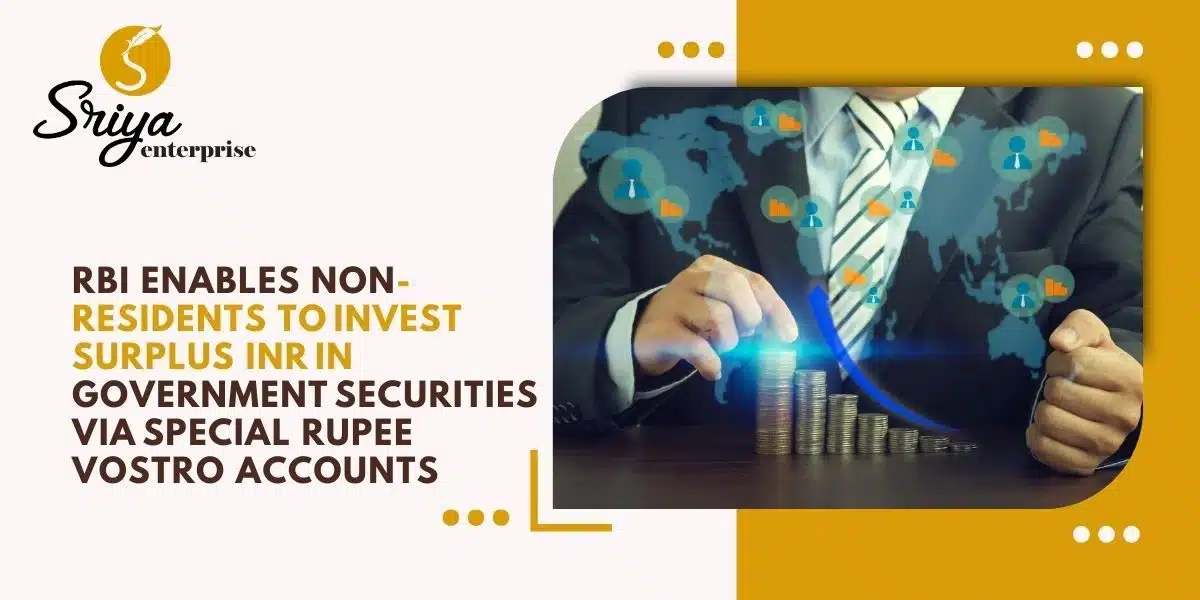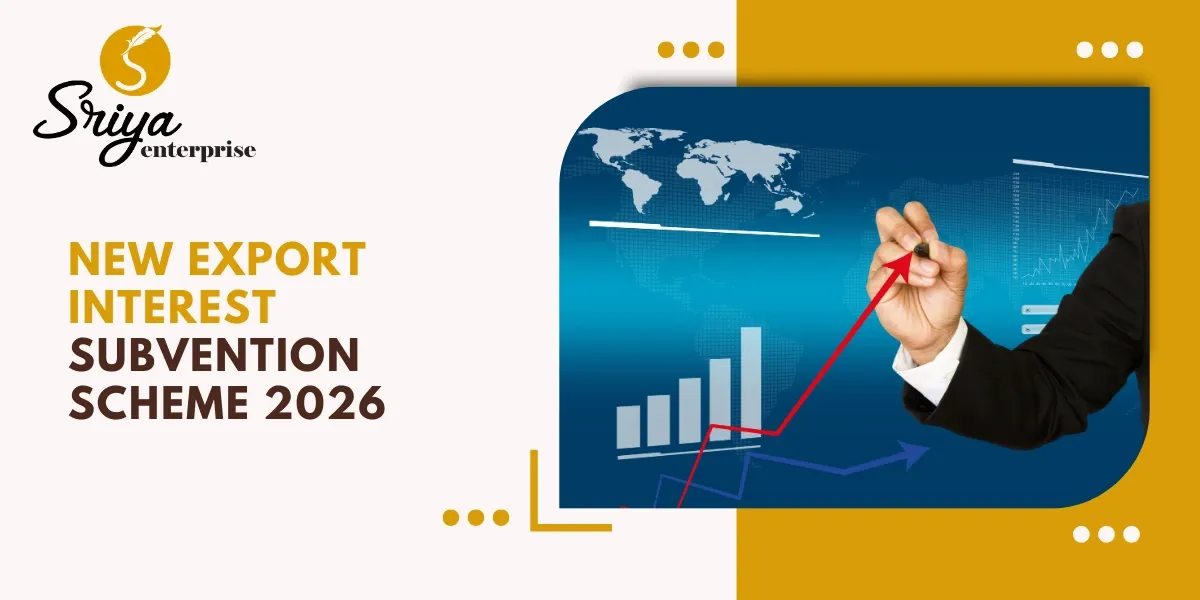The Interest Subvention Scheme for MSME Exporters has been a hot topic in trade circles…

The Reserve Bank of India vide RBI/2025-26/72 A.P. (DIR Series) Circular No. 09 dated 12/08/2025 now allows persons resident outside India, who maintain Special Rupee Vostro Accounts (SRVA) for international trade settlement, to invest their surplus rupee balances in Central Government Securities (including Treasury Bills) other than those included as ‘specified securities’ under the Fully Accessible Route shall be reckoned under the investment limit for these securities. Operational guidelines have been updated in the latest Master Direction on Non-Resident Investment in Debt Instruments. AD Category-I banks are advised to inform their clients about this important change.
A positive step towards boosting international participation in India’s financial markets!
This regulatory change, effective immediately, aims to bolster the internationalization of the Indian Rupee, deepen the government debt market, and enhance the usability of SRVAs in global trade settlements.
The operational provisions have now been embedded in the RBI’s updated Master Direction – Non-Resident Investment in Debt Instruments, opening fresh opportunities for non-resident investors to productively deploy idle rupee funds.
Background of SRVA
Special Rupee Vostro Accounts were introduced in July 2022 via A.P. (DIR Series) Circular No. 10 to facilitate international trade settlement in INR.
These accounts allow foreign banks, on behalf of their clients, to hold rupee balances derived from cross-border trade transactions with India.
Until now, holdings in SRVAs had limited deployment avenues. With this update, surplus rupee balances can now be invested in risk-free, sovereign-backed Central Government Securities, ensuring the safety of capital while generating returns.
Why This Matters
- Promotes INR Internationalisation – Increases the scope for using the rupee in cross-border trade and investment.
- Strengthens Government Borrowing Programme – Access to a broader investor base supports stable government financing.
- Efficient Use of Idle Balances – Converts unutilised trade settlement funds into secure investments.
- Deepens Bond Market Liquidity – Strengthens market participation and stability by attracting non-resident investors.
Impact on Banks and Trade
Authorised Dealer Category-I banks will be instrumental in operationalising this framework — from investor onboarding and compliance to executing investment transactions.
This also represents an opportunity for banks to strengthen ties with foreign trade partners by offering a secure investment route for surplus INR balances.
RBI – Investment in Government Securities via Special Rupee Vostro Accounts (SRVA)
What is SRVA? – A Special Rupee Vostro Account is held by foreign banks in India to facilitate international trade settlements in Indian Rupees (INR).
Who can invest? – Persons resident outside India maintaining SRVAs for trade settlements.
What can be invested in? – Surplus rupee balances can be invested in Central Government Securities, including Treasury Bills.
Regulatory Basis: Incorporated in RBI’s Master Direction – Non-resident Investment in Debt Instruments, 2025.
Effective Date: The directive is effective immediately since issuance (August 2025).
Benefits
- Enhances productive use of idle INR balances
- Supports the internationalization of the Indian Rupee
- Deepens liquidity in government bond markets
- Facilitates smoother cross-border trade settlements
- No FPI License Required: Overseas entities investing through SRVAs need not register as foreign portfolio investors.
- Investment Limits: Investments are subject to prescribed limits and operational guidelines by RBI.
Conclusion
The RBI’s decision marks a strategic step in integrating India’s financial markets with global capital flows.
For non-resident businesses, investors, and trade partners, this opens new investment avenues backed by the sovereign, while for India, it strengthens the rupee’s role in international trade and enhances debt market participation.
As the Indian Rupee’s footprint in global settlement expands, this measure ensures that surplus funds are not just parked — but put to productive and profitable use
For more details, connect with us



